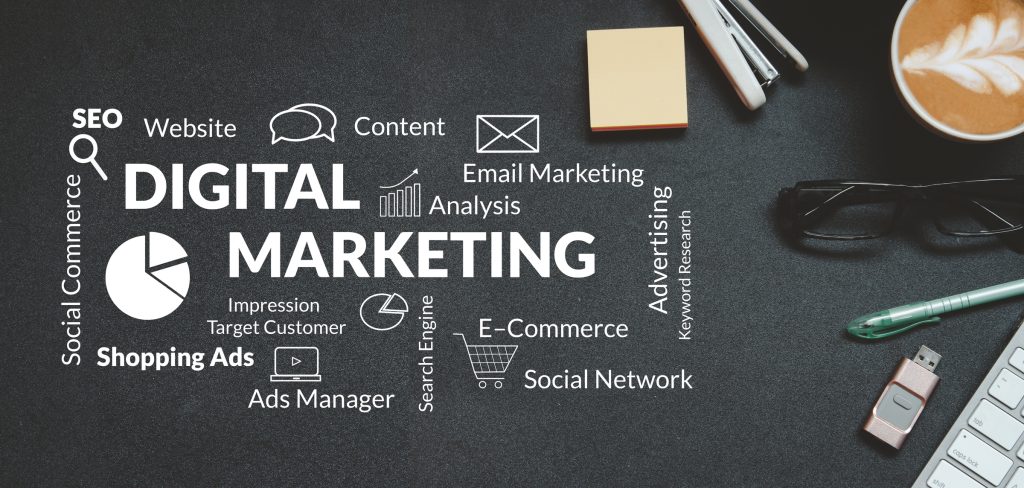No matter if you have a B2B company or a B2C brand, a small store or a hypermarket, a startup or a well-known company, you have to take care of your online reputation.
The thing is, despite all the benefits digital marketing, especially social media marketing, has, there are some menaces you need to be careful about.
Remember that all the platforms you use sometimes might be used by unsatisfied customers against you. In other words, if you don’t take special care of your reputation and customer satisfaction, you’ll find yourself in big trouble.
That’s why we’ve gathered some tips to help marketers and business owners manage their business reputation when marketing and advertising.
Check review websites
The majority of businesses have their own websites dedicated solely to product and service reviews.
They’re also a gold mine for gaining an overview of your brand’s emotion and gathering input in order to effectively manage brand reputation.
Apart from your website, you need to look at sites that are solely designed for product reviews.
Try to spend some time researching these websites that give useful information for every company. Then, on a regular basis, such as once a month or every two weeks, keep an eye on them. For example,
- Capterra
- Consumer Reports
- PC Magazine
These websites, of course, do not have to be only dedicated to reviews. There are websites that accomplish this while also providing additional material sources. The aim is to discover a reputable site that collects customer feedback and ratings and gives you insightful data about your brand mentions.
Get direct feedback from niche audiences
Another crucial step in efficiently managing your brand’s online reputation is to seek reviews and comments from your previous consumers.
Remember that the feedback you receive is important not just for acquiring new consumers but also for your company’s growth.
Don’t be one of those businesses that are only interested in earning a few nice reviews to post on their website. Positive feedback is crucial, but useful negative criticism is sometimes even better.
Because no one can better assist you in improving your products and services than your existing consumers. There are two methods for obtaining genuine feedback and testimonials. For example,
- Provide online rewards
- In-store incentives
Of course, if you’re interacting with your consumers on a more intimate level, you may ask them for a review or feedback directly.
For businesses in the B2B sector, this may be the case.
Recruit a team of responsive social media customer service
The next piece of advice for managing your online brand reputation is to have responsive customer service on social media.
As you know, having business accounts on social media platforms is central to every digital marketing campaign. But the thing is you need to be careful about customers’ reactions on these platforms.
In other words, providing exceptional customer service that even if your customers write bad feedback, they know they can depend on you to resolve the issue.
This will also help potential buyers who are reading these evaluations and responding to them feel more at ease and motivated to try your goods.
In fact, if you provide excellent customer service, your current customers will initially try to resolve the issue with you.
Increase honesty and transparency
Of course, one of the most effective strategies to manage your online brand reputation is, to be honest with your clients – they will enjoy it.
When dealing with bad reviews, always be genuine and open. After all, managing your brand’s reputation isn’t about showing that your firm is flawless and that you never make a mistake.
On the contrary, even the finest among them will face difficulties.
Now, I’m not a huge fan of the expression “the customer is always right.” However, I believe you should attempt to avoid falling into the habit of making excuses in response to problems. Instead, acknowledge the issue and offer solutions in the form of the next actions.
If someone complains about a technical problem, for example, thank him for his criticism and answer by noting that your staff is working on it.
If it’s a temporary problem, you may even go a step further and let him know when the problem is resolved.
Post informative content
Blogging is another way to efficiently manage your brand’s reputation. Yes, you read that correctly.
Writing and educating blog or social media posts that are both content-rich and search engine-friendly is a fantastic approach to raising brand recognition.
Also, it will help you improve your online reputation and make you appear like a niche thought leader. In other words, it can assist you in establishing knowledge, authority, and credibility.
It also provides another way for your audience to communicate with you. They may write comments on your blog entries, which will help you get more Google reputation points as well as in front of other readers.
Last but not least, blogging might aid in the ranking of your company’s name.
Use the best reputation management tools
There are several paid and free marketing tools available to assist you in successfully managing your brand’s reputation. The following are a few of the more popular and useful ones:
Google Alerts
You can use this tool to set up an alert for a certain term. You may, for example, establish an alert for your own company’s name.
As a result, if your brand name is used, Google will give you an alert, allowing you to instantly discover the material.
Buffer
Buffer is a social media solution that helps you increase your audience and brand across the most prominent social media platforms.
Similar Web
This platform provides Marketing Intelligence solutions, allowing you to see trends as they emerge. It also allows you to assess your market and study audience behavior, which is useful for managing your brand’s reputation.
Semrush
This is another tool that may assist you in increasing and monitoring your brand’s visibility. It offers a number of tools for traffic analysis, market research, brand monitoring, topic research, and post-tracking to consumers.
In other words, everything you’ll need to keep track of your audience and understand what they’re saying. (This is an affiliate link).
For marketing agencies and consultants looking to offer comprehensive reputation management as a branded service to their clients, a white label reputation management solution like Reviewly can be a powerful addition. This type of platform allows you to manage review generation, monitoring, and responses for multiple clients from a single dashboard, all under your own agency’s brand, creating a new revenue stream while providing enterprise-level tools
Mention
This is another wonderful tool for keeping track of your brand online. It helps you to hone in on and recognize key interactions, display data, and create automatic reports.
Conclusion
Managing your online reputation is an essential part of every digital marketing campaign. Try to pay attention to every detail to prevent any damage to your business reputation. Remember that being more human and interacting with customers like themselves is key to increasing brand loyalty and improving your brand reputation.
___
by Tom Siani








